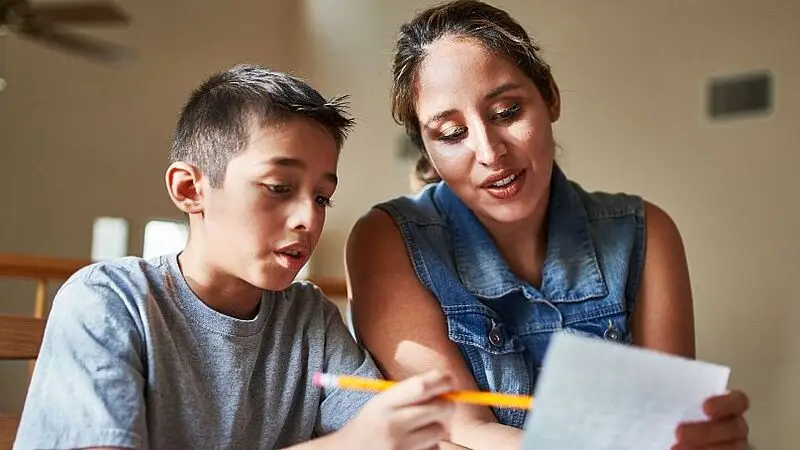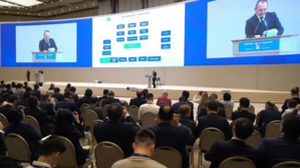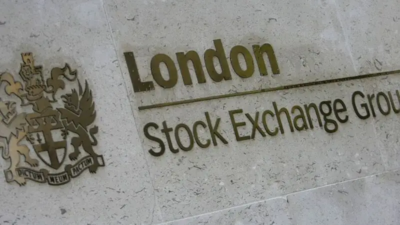Parents: A guide to saving for your child's financial future
Whether you have lots of disposable income, or simply a small sum set aside, knowing how to manage a nest egg fund can help to secure your child's financial future.
According to a NatWest study from 2021, just over three-quarters of parents in the UK put money aside for their kids, but the majority aren't managing these savings effectively.
HyipScan.Net Business explains some of your options for building a nest egg.
Savings accounts
One typical way of putting money aside for the next generation is by using a children's savings account.
It acts very much like an adult savings account, but the interest rates can be slightly better, and management fees are often lower.
As long as you're acting on behalf of a minor, anyone can set up this type of account, anyone can pay into it, and you can generally start with as little as £1 (€1.17).
Depending on the specific terms of the deal, the money can often be managed by a child once they reach the age of seven, and you can withdraw or pay in money whenever you want.
This is more likely to be the case with 'easy and instant access' accounts, rather than higher interest 'regular savings accounts', where it may be more difficult to take out funds.
One benefit of children's savings accounts is that young people can learn to manage their money early, which can improve financial literacy later in life.
That said, these accounts usually don't have the same tax advantages as junior ISAs, which we'll explore later.
Watch out for tax on interest
Following current guidelines, parents and guardians must inform HMRC - the UK's tax authority - if, in the tax year, a child gets more than £100 in interest earned on money given by a parent.
If this is the case, then all of the interest will be taxed as if it were the parent's money (not just the interest over £100).
"Parents haven't had to worry about this little-known tax rule while savings rates have been abysmally low, but now they are creeping up they could find HMRC comes calling for unpaid tax," said Laura Suter, director of personal finance at financial firm AJ Bell.
The £100 limit doesn't apply to transfers from grandparents, relatives or friends, or when this money is put into a junior ISA.
On the subject of tax, it's also important to remember that children have a personal tax-free allowance just like adults.
This means that if the child's general income (including income on interest) is above £12,570 for 2023/24, they'll have to pay tax on this.
Despite this, it's actually possible to raise the threshold thanks to the savings starter rate, which means your child can earn up to £18,570 tax-free in certain cases.
Junior ISAs
Junior ISAS, or JISAs, are a popular type of tax-free product in the UK that can be set up by a parent or guardian for minors in their charge.
The child will only have access to this fund once they reach 18, but the money belongs to them, and they will be able to start managing it from the age of 16.
Anyone can contribute to a JISA, but the limit you can pay in for the 2023/24 tax year is £9,000, compared to the adult threshold of £20,000.
One of the key things to note about JISAs is that, like adult ISAs, you can either put your money into cash or stocks and shares.
Starting a stocks and shares JISA means that your child’s money will be invested in products like shares or bonds, rather than being locked in a bank account.
Looking at HMRC's most recent statistics, £1.5 billion was paid into junior ISAs in the tax year 2021/2022, and 42% of this was held in cash, rather than being invested.
According to NatWest's data, 83% of parents save for their children exclusively in cash.
"Often the way we think about risk is a bit faulty,"said Sarah Coles, head of personal finance at financial services company Hargreaves Lansdown, who argued that investing savings is usually the smarter option.
"We tend to overlook the risk of a cash junior ISA not keeping up with inflation, and then we underestimate the potential growth of a stocks and shares ISA," she said.
Annabel Brodie-Smith, communications director at The Association of Investment Companies, agreed that investing is a solid option, but explained that it's one that lots of people ignore.
"I think it's partly risk aversion," she said "I also think there's a general view that investing in the stock market is complicated, and that you need lots of money to do that. And that's not necessarily the case."
If you choose to invest your money, this does incur risk, but market fluctuations can usually be weathered when funds are invested over a long period of time.
Remember that it's possible to have both a cash and a stocks and shares JISA, but the £9,000 limit must be spread across both types of assets.
Child trust funds
If you have a child born between 1 September 2002 and 2 January 2011, they likely have a child trust fund.
During this period, the government sent out investment vouchers worth around £250, so that parents could start a tax-free trust fund for their kids.
For those who didn't cash the vouchers, the government invested this money on the child's behalf.
The trust scheme ended in 2011, meaning you can no longer open one of these funds, but the money in them is still accessible.
Because of the government's automatic process of investing, many individuals don't know they have a trust fund.
If you think you or your child may have lost savings, you should contact HMRC.
Nowadays, you can still use an already existing child trust fund, but interest rates tend to be low, so it's more advantageous to transfer this money to a junior ISA.
Bare trusts
If you're looking for a flexible way to save money for your kids, a bare trust might be a good option.
Unlike JISAs, you can pay an unlimited amount into a bare trust, and parents are also able to spend this money on their child before they turn 18 (e.g. to pay school fees).
If a parent opens one of these accounts for their child, this means that they can become a trustee, but their child will have ownership of the money once they become an adult.
With bare trusts, you don't get the same tax benefits as with JISAs, as income is taxed at the child's marginal rate.
Some people use bare trusts for inheritance tax relief, as if the person gifting the money lives for at least seven years after making the transfer, you don't have to pay inheritance tax on this sum.
You should also note that if the money falls within your annual gift allowance of £3,000, it will be free of inheritance tax.
Like with JISAs, children have to pay tax on interest over £100 if it was earned on money gifted by a parent.
Junior SIPPs
Whilst a pension may not be the first thing that comes to mind when planning a nest egg fund, a junior SIPP (a self-invested personal pension) can still be a smart way to pass down money.
A SIPP is a fund that a young person can manage themselves once they turn 18, although they won't be able to withdraw this money until they reach retirement age.
By setting up a SIPP for your child, you will allow them to build up Investments and cash for later in life, and they'll be able to hold these funds alongside a workplace pension.
Another key advantage of a junior pension is that these funds are free from income or capital gains tax, and every time you contribute to the pot, the government will add 20% in tax relief.
The junior SIPP allowance for 2023/24 is £3,600 including tax relief, which means that you can pay in a maximum of £2,880, and the government will add £720.
"What you have to think about is 'What is the purpose of this money?'," explained Brodie-Smith when discussing saving for children through SIPPs.
"Are you happy with it going to fund your child's retirement, or would you prefer this money to be used for university costs, or further education costs, or saving for a home?" she said.
Many grandparents and older parents want to give their children money whilst they are still around to see it used, although you should note that longer-term investments generally bring greater returns.
How do you choose your investments?
If you want to invest for your child's future, choosing where to put your money can feel like a daunting task, but it doesn't have to be.
"Often the average person doesn't have the tools to value a company using fundamentals," said Professor Arman Eshraghi, chair of finance and Investment at Cardiff University in Wales. "And therefore the safest thing to do is to go with the market and to buy a so-called index fund, to invest passively."
Passive investing means investing in securities (e.g. bonds and stocks) that mirror stock market indexes (e.g. the S&P 500, Dow Jones, FTSE 100).
If you have a fund that tracks, for example, the S&P 500, it will be made up of investments in the components that make up this index, and your fund will perform in the same way as the S&P 500 as a whole.
Passive index investing is generally a low-risk, low-charge way to build up your wealth, and it doesn't require a lot of financial expertise.
Another option is to actively invest, where you research investments and continuously manage your portfolio, and you can pay a professional to do this for you.
When choosing between passive and active funds, "it comes down to preference", says Laura Suter from AJ Bell.
"Put simply, a passive investment approach will cost you less but will only track the performance of the market – never outperform it," she said. "With active management, you're paying more to have a fund manager pick stocks for you, but the hope is that this will generate a higher return."
Some basic rules of investing are to spread your risk by diversifying your investments, to check for extra charges, and to think about your desired risk level and investment timescale.
Look after yourself first
Whilst saving for your children can give them a leg up later in life, it's important not to neglect more immediate needs if you're struggling with your finances.
When talking about nest eggs, you sometimes hear people use the 'oxygen mask analogy', explained Sarah Coles from Hargreaves Lansdown.
If you've ever witnessed a safety demonstration on a plane, you'll have been told to 'help yourself before helping others', and we can apply the same approach to personal finances.
"It's wonderful to be able to save your children. But actually, you know, if you're running up debts, or failing to save for your pension, or not having any emergency savings and ploughing it all into JISAS, then you're not in the end going to help anyone,” said Coles.
"You might give your kid a lump sum at 18, but then when you come to retire, you may need them to help support you," she added. "When it comes down to it, the most important thing is to make sure that you have all the right things in place and then look to support your family."
If your situation allows, Coles says that asking extended family for donations towards your child's future could be an option.
Remember, children don't pay tax on savings interest over £100 if the original sum was gifted by someone other than a parent.
Another key point to remember is that small investments can bring considerable returns over the long term, as dividends and interest payments can be reinvested.
That means that making small investments towards your child's future can still make a big difference.
Disclaimer: This information does not constitute professional financial advice, always do your own research on top to ensure it's right for your specific circumstances. Also remember, we are a journalistic website and aim to provide the best guides, tips and advice from experts. If you rely on the information on this page, then you do so entirely at your own risk.
Maybe You Like
London Stock Exchange urged to do more to hold onto retail traders
The UK stock market needs to improve investor communication and engagement in order to retain its individual traders, according to a report from online trade and investor provider CMC Markets. ADVERTISEMENTUK retail investors are increasingly...
Hargreaves Lansdown rejects private equity takeover bid
The UK investment platform says the offer from a group including the Abu Dhabi Investment Authority undervalues the firm. ADVERTISEMENTHargreaves Lansdown has rebuffed a takeover proposal worth £4.67 billion (€5.48 billion) made...
Ferrovial set to offload UK regional airports amid Heathrow deal uncertainty
Ferrovial is planning to sell its stake in three UK regional airports amid difficulties in finalising its £2.4bn sale of a 25% stake in Heathrow. ADVERTISEMENTSpanish infrastructure company Ferrovial is reportedly putting up for sale...




























